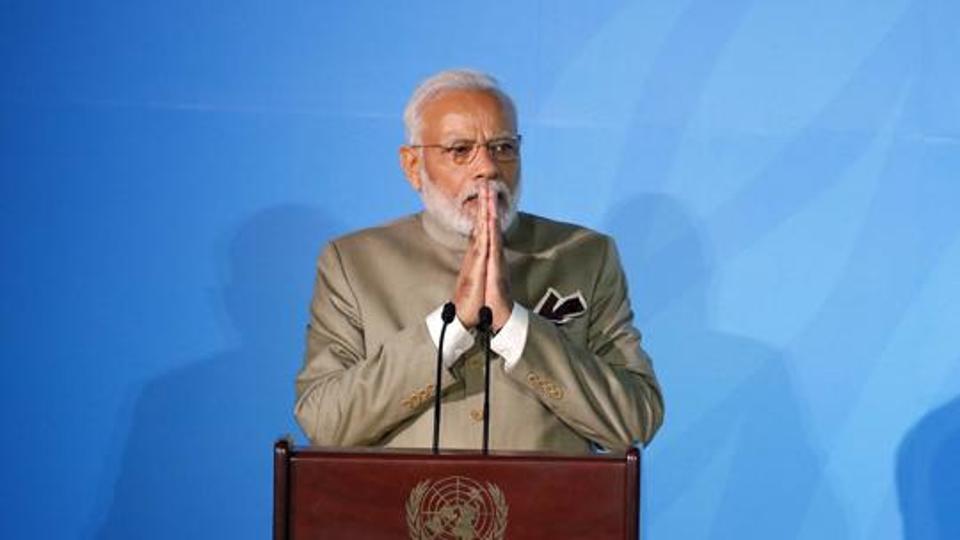President Donald Trump, who pulled the US out of the Paris climate accord in 2017, made an unexpected appearance when Prime Minister Narendra Modi addressed the Global Climate Action Summit on September 23, and applauded when Modi said the time for talking on climate change was over.

India has sought to claim the mantle of a world leader on climate change, unveiling plans to more than double its renewable energy capacity to 450 GW and launching the Coalition for Disaster Resilient Infrastructure on the sidelines of the UN General Assembly.
President Donald Trump, who pulled the US out of the Paris climate accord in 2017, made an unexpected appearance when Prime Minister Narendra Modi addressed the Global Climate Action Summit on September 23, and applauded when Modi said the time for talking on climate change was over.
“The time for talking is over; the world needs to act now,” Modi said, recounting India’s aspirations and actions such as plans to increase its reliance on renewable energy to more than 175 GW by 2022 and 450 GW at a later date.
Modi was among four world leaders who addressed the climate summit, while others either spoke later or were part of a panel discussion. A day after the summit, India inaugurated the Gandhi Solar Park with 193 solar panels, each representing a member of the United Nations, on the roof of the UN headquarters.
Climate change also formed a substantial part of his speech at the UN General Assembly, being one of his two major pitches, alongside terrorism.
The Climate Action Summit, called by UN Secretary-General Antonio Guterres to implement and advance the Paris Accord, was marked by growing impatience and exasperation with climate sceptics such as Trump, who was the unmistakable target of some speakers.
The summit came after a week of global protests and marches aimed at drawing attention to climate change, and teenage activist Greta Thunberg excoriated practically everyone for not doing enough in a much-applauded speech.
The steps taken by India signal its desire to emerge as a leading advocate for action to counter climate change. While aligning himself with those pressing for more action, Modi said an ounce of practice was worth more than a tonne of preaching. He also acknowledged that everything currently being done by different countries to tackle this serious challenge was “just not enough”.
“We need today a comprehensive approach that would include education, values, lifestyles and development philosophy,” he said, calling for a “global campaign to forge behavioural change”.
Modi said the Coalition for Disaster Resilient Infrastructure was one of the ways to cope with the increasing number and severity of natural disasters brought on by climate change.
Modi also told the gathering about an initiative India was co-leading with Sweden to launch a leadership group that will provide a platform for governments and the private sector to cooperate in technology innovation and develop low carbon pathways for the industry.
Modi recounted with some satisfaction the progress made on the International Solar Alliance that India launched with France in 2015 on the margins of the signing of the historic Paris Accord. This had bagged him and French President Emmanuel Macron the top UN environment award last year.
However, experts contended that the US, China and India, responsible for the largest greenhouse gas emissions, had offered little with regard to their commitments to cut emissions. “What we’ve seen so far is not the kind of leadership we need from the major economies,” Helen Mountford, vice president (climate and economics) at the World Resources Institute, told reporters.
According to the UN, global emissions are reaching record levels and show no sign of peaking. The last four years were the hottest on record, and winter temperatures in the Arctic have risen by three degrees Celsius since 1990. Sea levels are rising, coral reefs are dying, and countries are starting to see the life-threatening impact of climate change on health, through air pollution, heatwaves and challenges to food security.
Article Credit: hindustantimes
